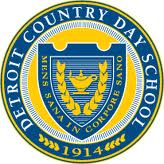Recently we have received reports from students regarding Twitter accounts that have been anonymously created, and used to publish disparaging and / or offensive "tweets" (online messages of 140 characters or fewer) relative to students and other members of the DCDS community.
If you are unfamiliar with Twitter, it is an online social media application that in some surveys is beginning to rival Facebook for popularity amongst teens.
Social media sites such as Facebook, Twitter , and LinkedIn (a kind of business version of Facebook) have exploded in popularity and variety in recent years. These platforms allow for amazing global connectivity, and offer varied and impressive for potential use in schools, business and social interaction. If you have any doubts as to whether the social media phenomenon is here to stay, this short video will be eye-opening.
Nevertheless, there are some inherent problems associated with social media. One of the issues facing schools is the problem of cyber-bullying. In our society it is becoming increasingly common for teens to hide behind the anonymity of their computer, table or phone and post unkind things about their peers. Unfortunately, this phenomenon is not unique to teens, but it has caused a difficulty for schools as we try to maintain safe, nurturing environments for students. Cyber-bullying hurts in the same ways that other forms of bullying affect students, but has the added component of a very public platform.
We have a Pk-12 technology committee addressing proactive steps that we do and can take, and other steps that we might be able to take in the future to educate students, faculty, staff and parents regarding social media. In the meantime, we are requesting your assistance in speaking with your children regarding their online profiles and activities, and emphasizing to them appropriate online language, etiquette, and kindness to others. If you or your children have any information regarding online accounts set up anonymously for the purpose of bullying or other inappropriate behavior, we would appreciate your assistance in sharing that information with us so that we can work to eliminate such issues.
For more information on Twitter, and how it works, please visit the following link to an education.com article for parents that gives good information and suggestions : http://www.education.com/magazine/article/parents-guide-to-twitter .
